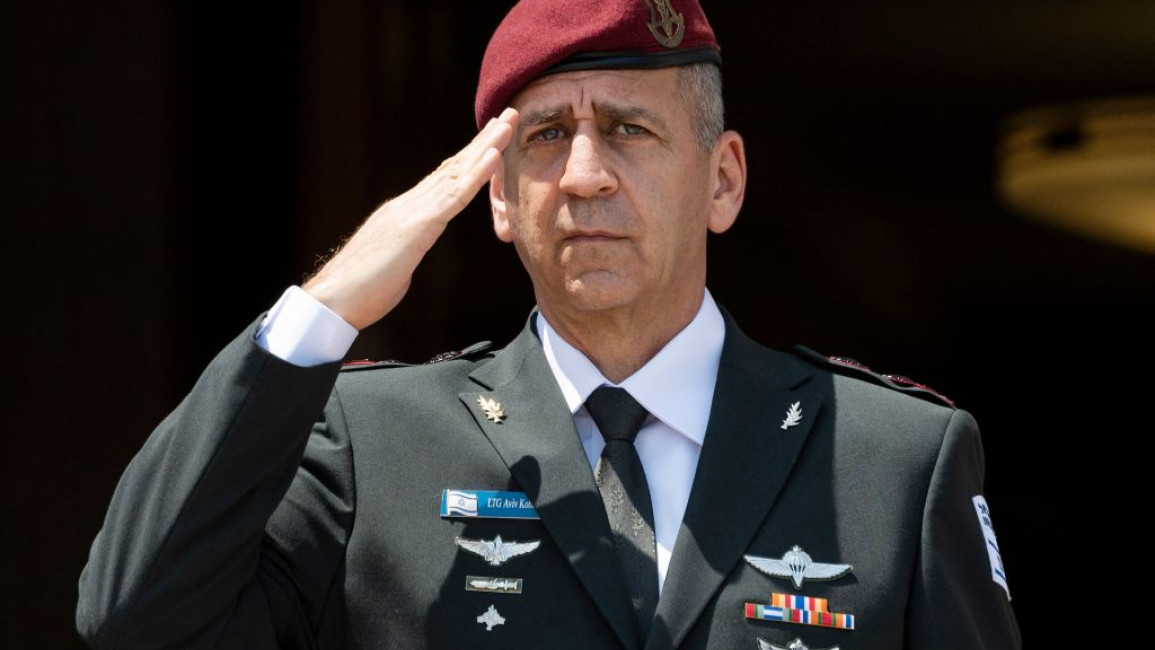Israeli military chief warns of increased attacks against Iranian nuclear targets
Israel is accelerating preparations to target Iran's nuclear programme, according to Israeli military chief Aviv Kohavi.
Kohavi said in an interview with Israeli news outlet Walla on Monday that much of the recently agreed upon increased military budget would be used to target Iranian actions across the region, committing further operational capabilities and more armaments.
The military chief described the main objective of Israel's military as "minimising Iranian presence in the Middle East, with an emphasis on Syria… but these operations take place throughout the Middle East".
Airstrikes conducted by Israel had "greatly diminished Iran’s presence and weaponry in the northern arena, certainly in comparison to what they sought", he said.
Israeli actions were also "very active in disrupting the smuggling routes of Hezbollah, of Hamas, of Iran, in all regions".
Kohavi’s threats mirror similar statements made recently by Israeli Defence Minister Benny Gantz, who told foreign diplomats that Israel may take military action against Iran.
"The State of Israel has the means to act and will not hesitate to do so. I do not rule out the possibility that Israel will have to take action in the future in order to prevent a nuclear Iran," the defence minister said.
He went on to claim that Iran was only two months away from acquiring the materials needed for nuclear weapons, although Israel's military has stated that Tehran would need several months before it could produce working nukes.
"We do not know if the Iranian regime will be willing to sign an agreement and come back to the negotiation table and the international community must build a viable 'Plan B' in order to stop Iran in its tracks towards a nuclear weapon," he continued.
Talks between Tehran and Western powers, aimed at restarting the Iran nuclear deal, have stalled since the Iranian hardliner Ebrahim Raisi became president.
No date for the resumption of talks has been set, although Iran has not ruled out a return to the table.
"We are not seeking to flee the negotiation table and the... government considers a real negotiation is a negotiation that produces palpable results allowing the rights of the Iranian nation to be guaranteed," Iranian Foreign Minister Hossein Amir-Abdollahian said during a recent interview on state television.
"The other party knows full well that a process of two to three months is required for the new government to establish itself and to start taking decisions."



